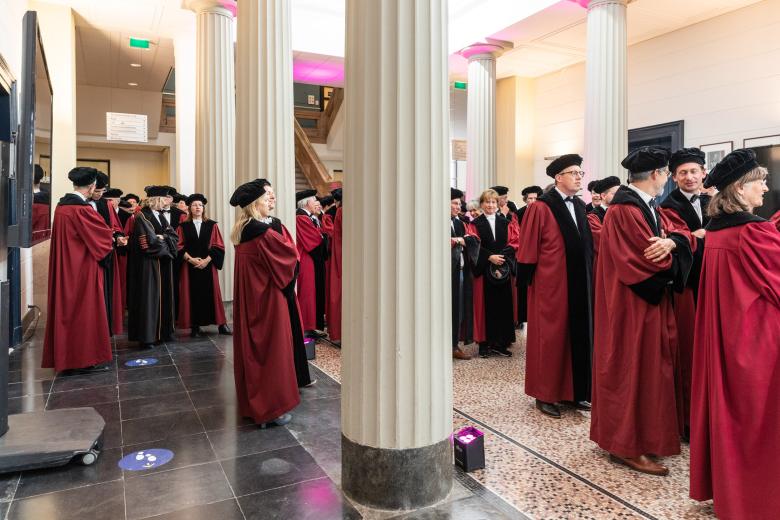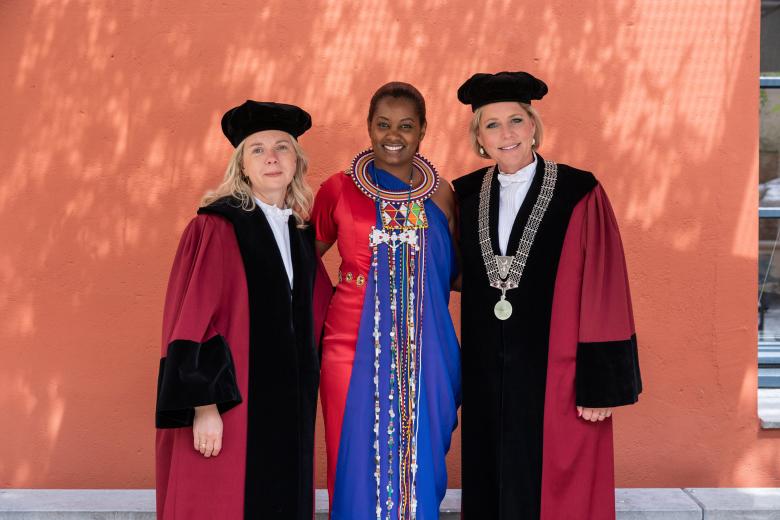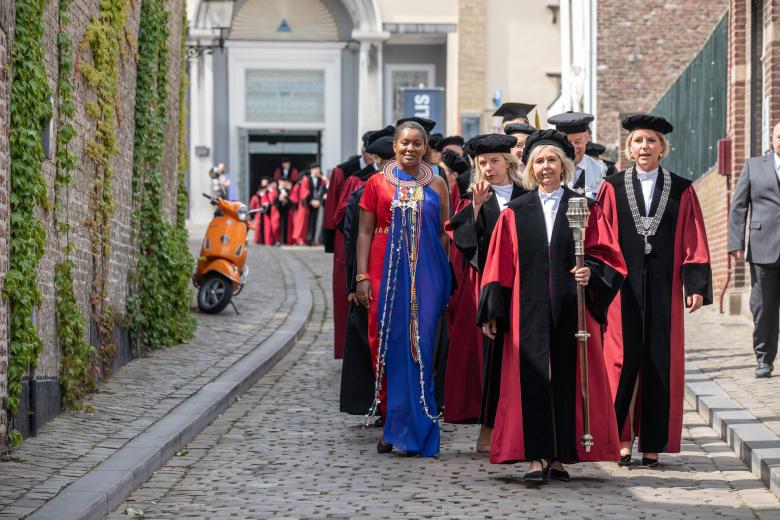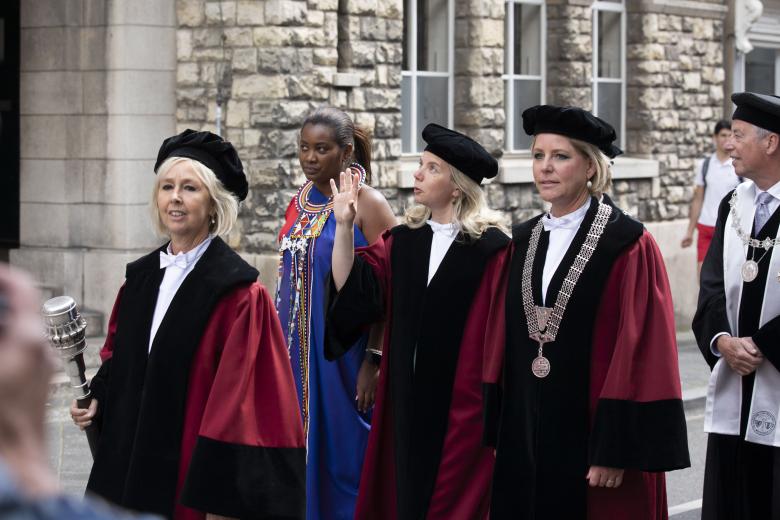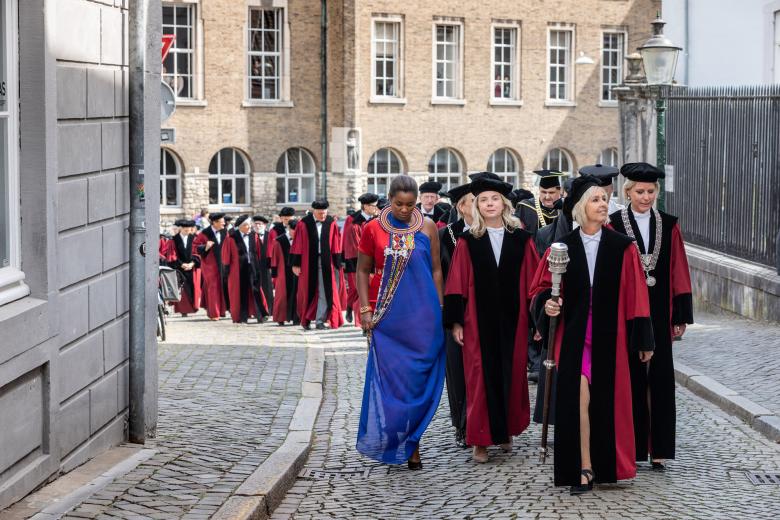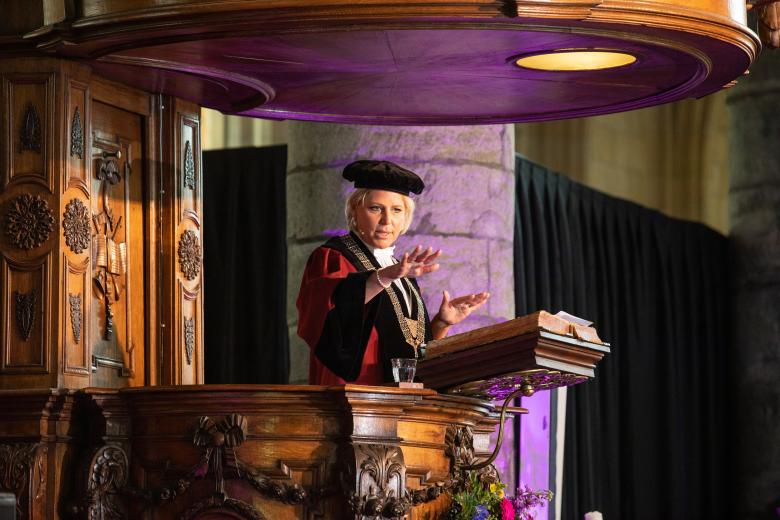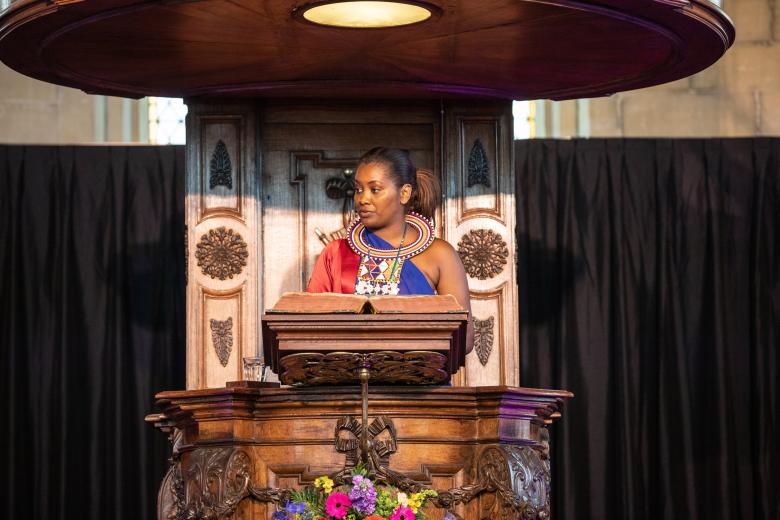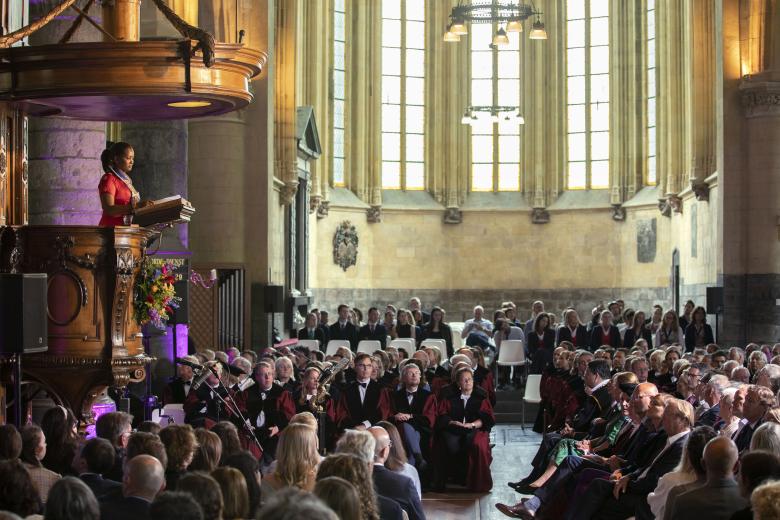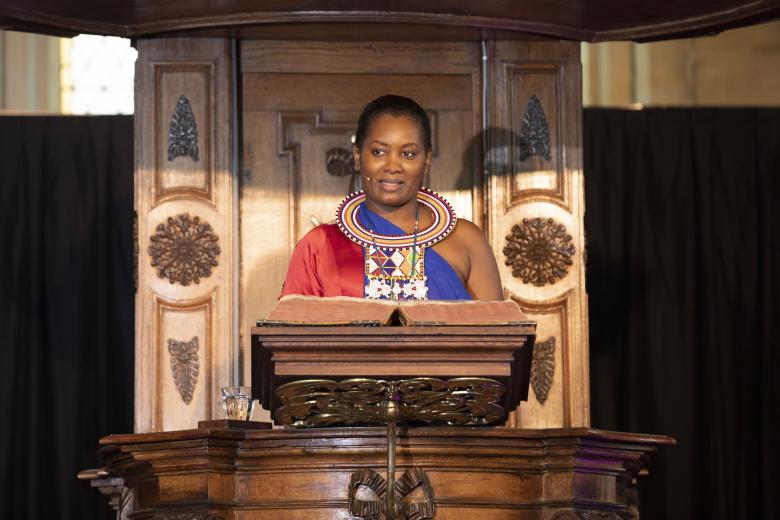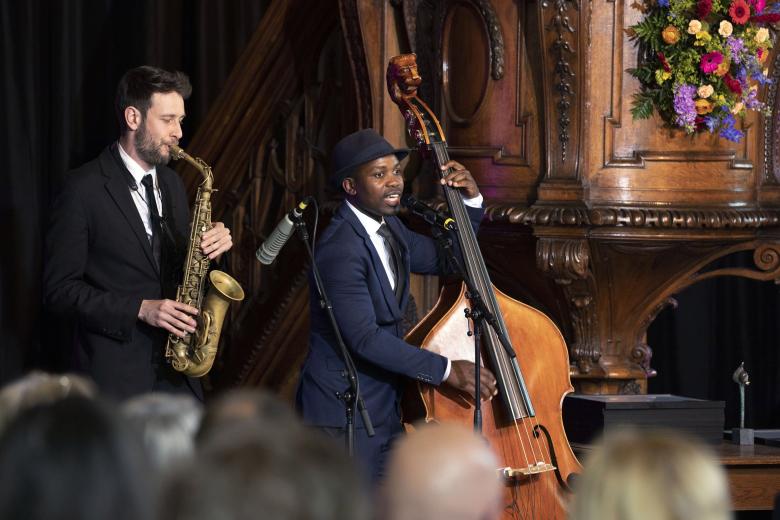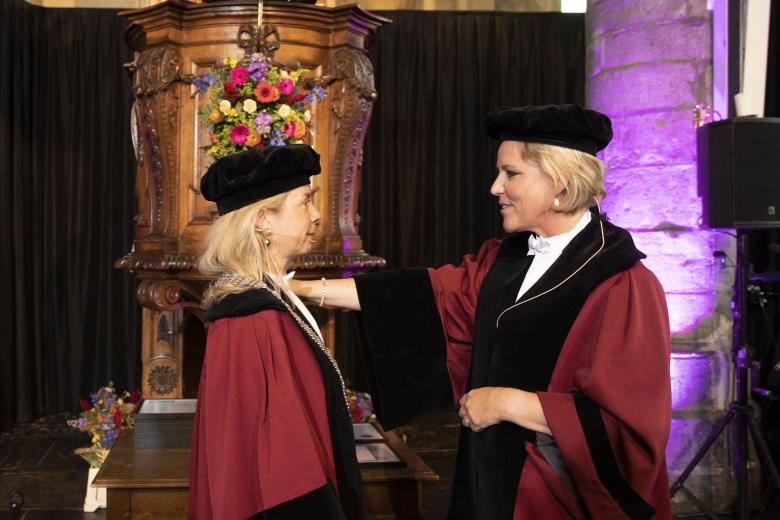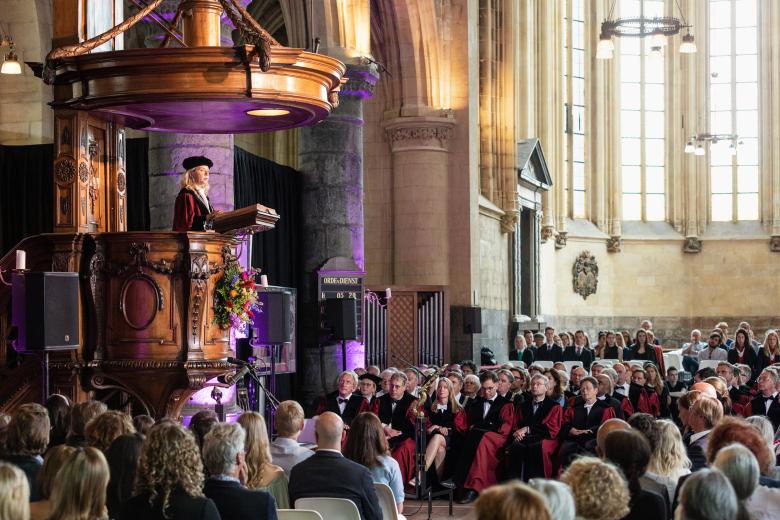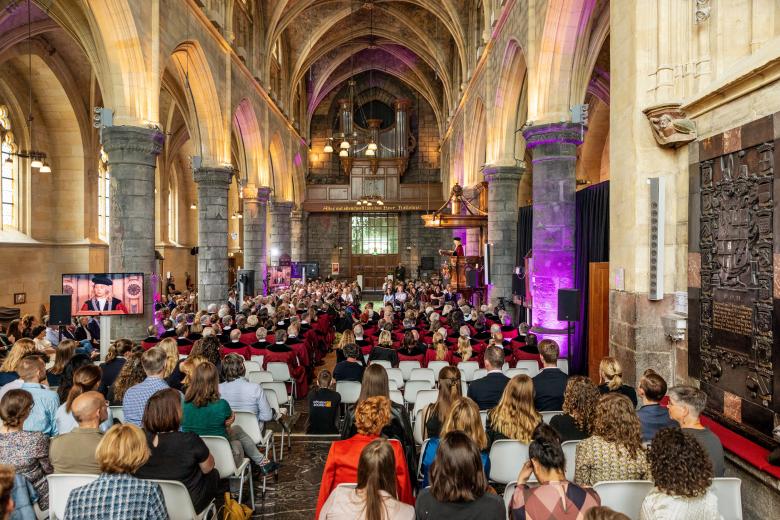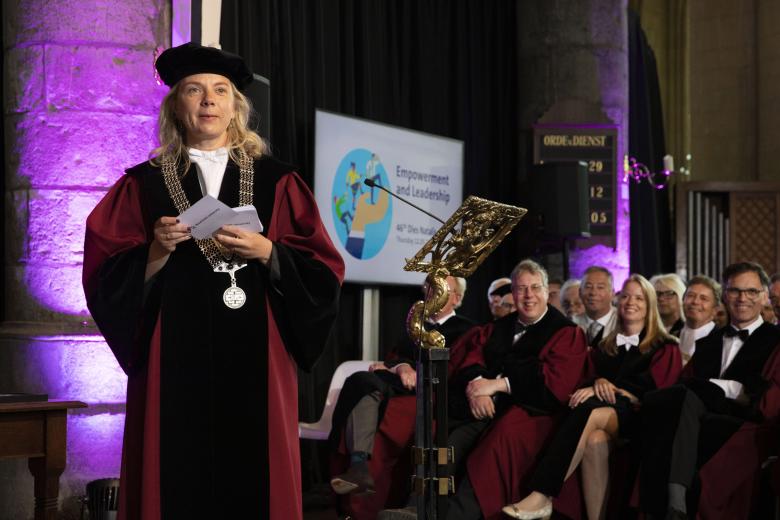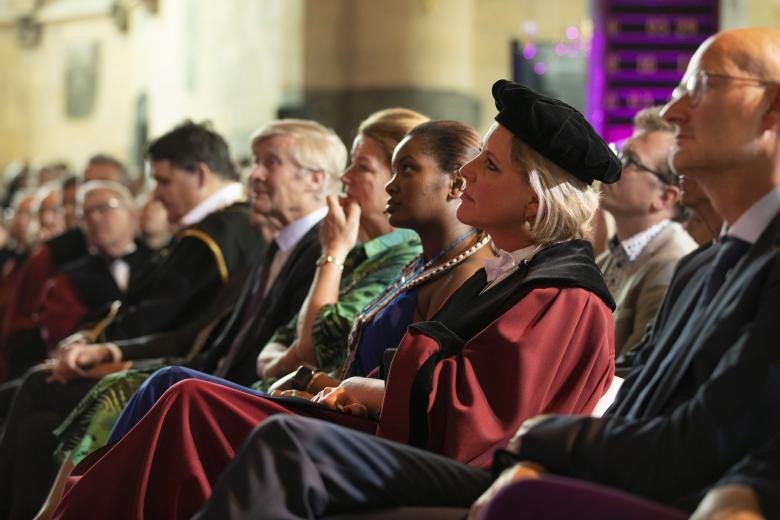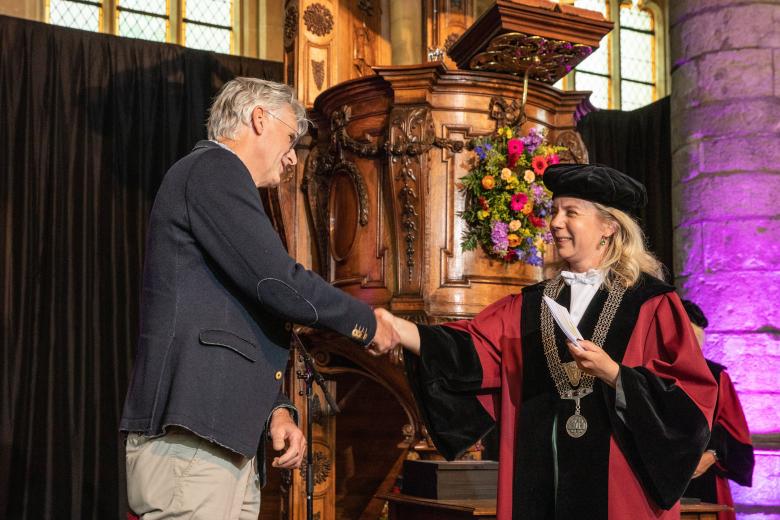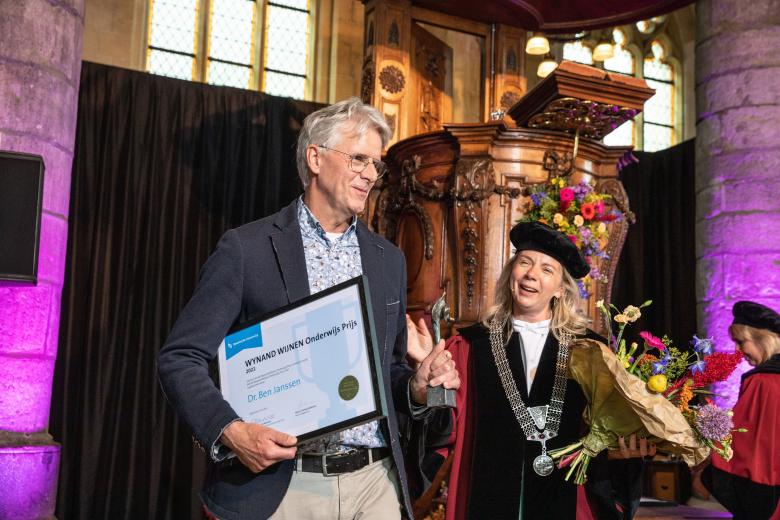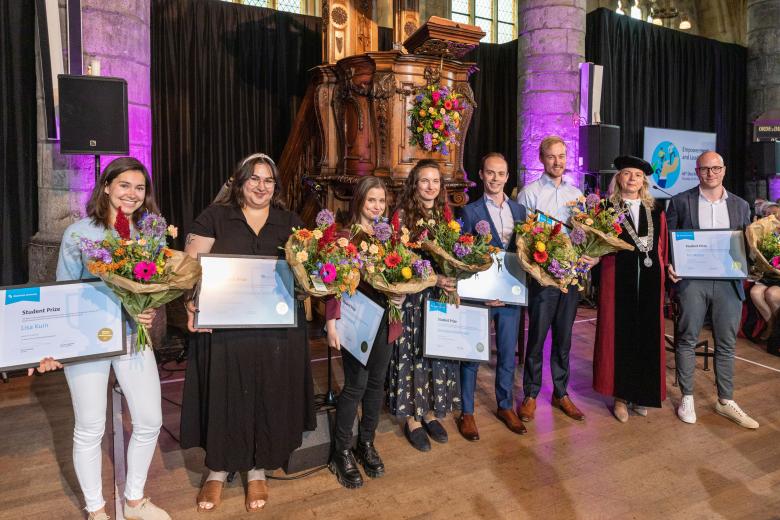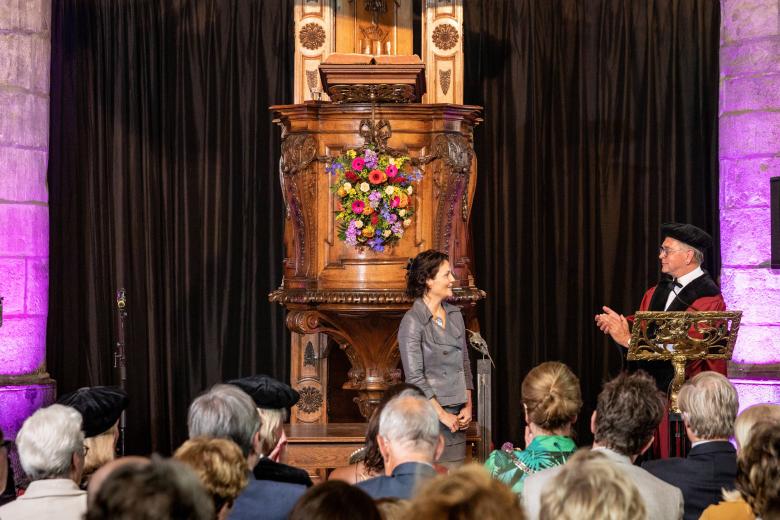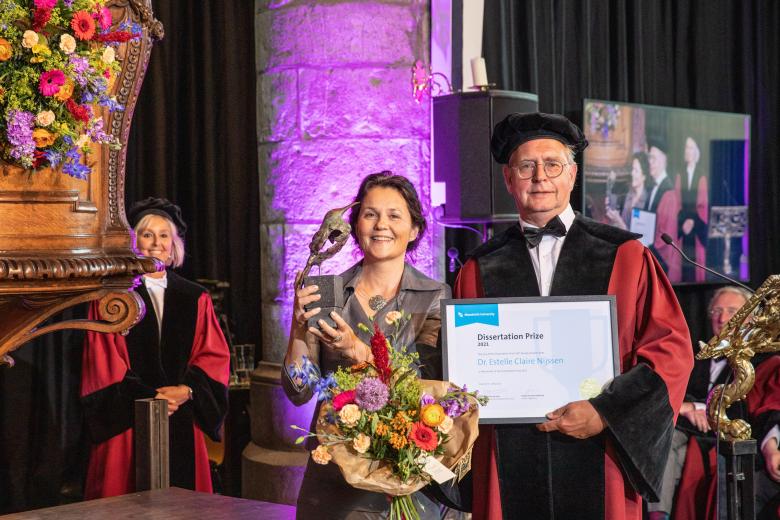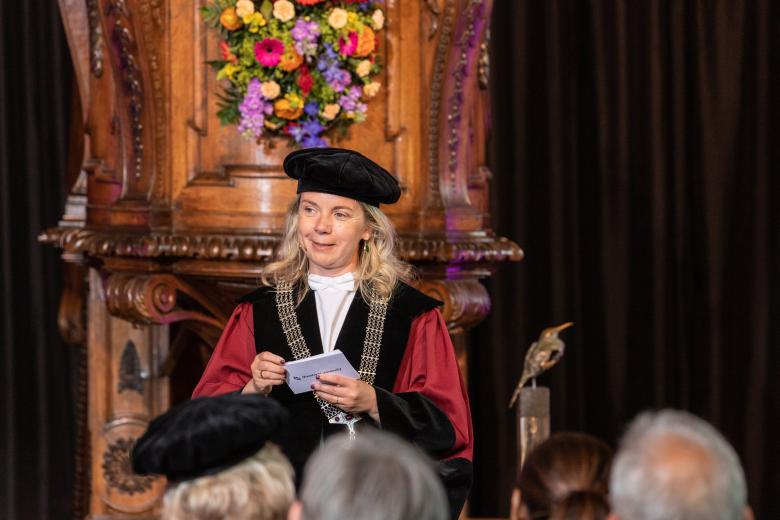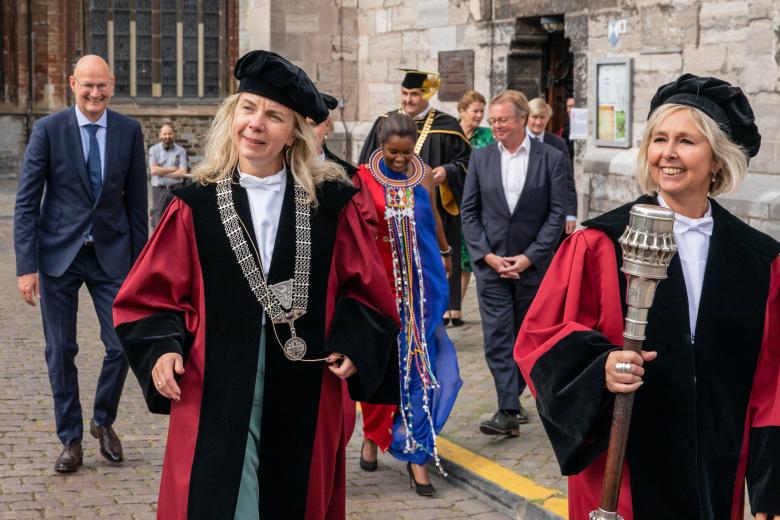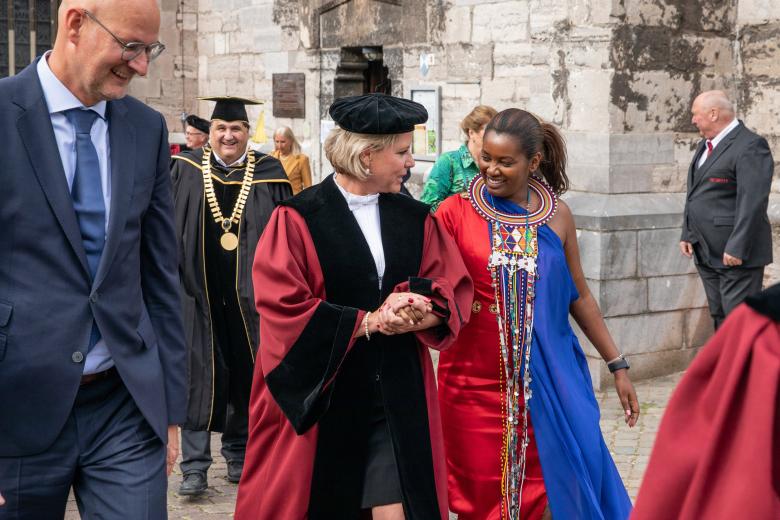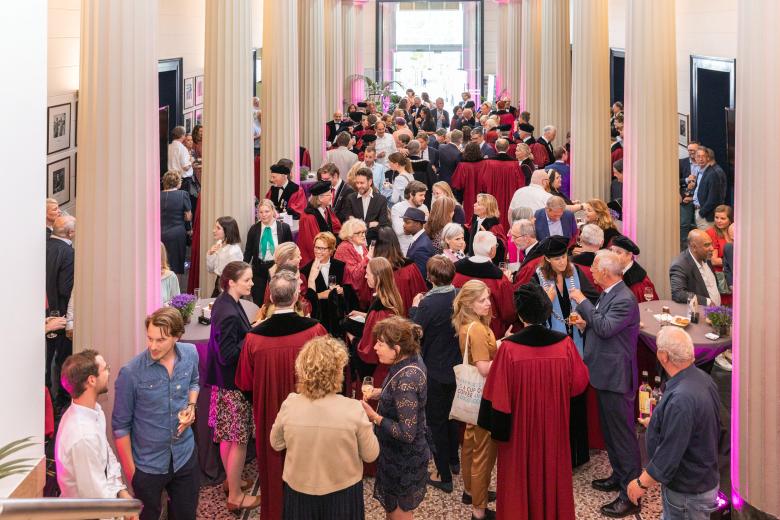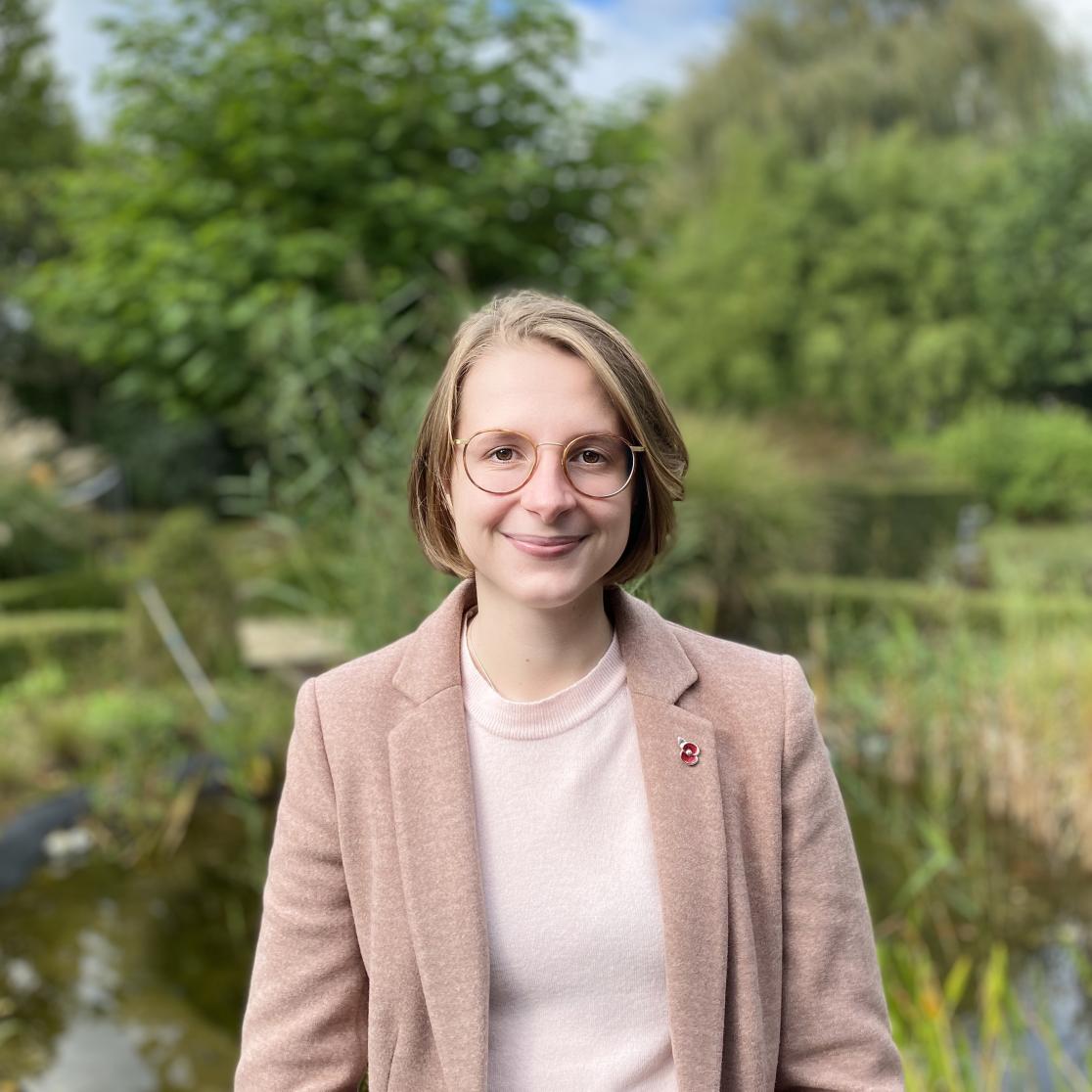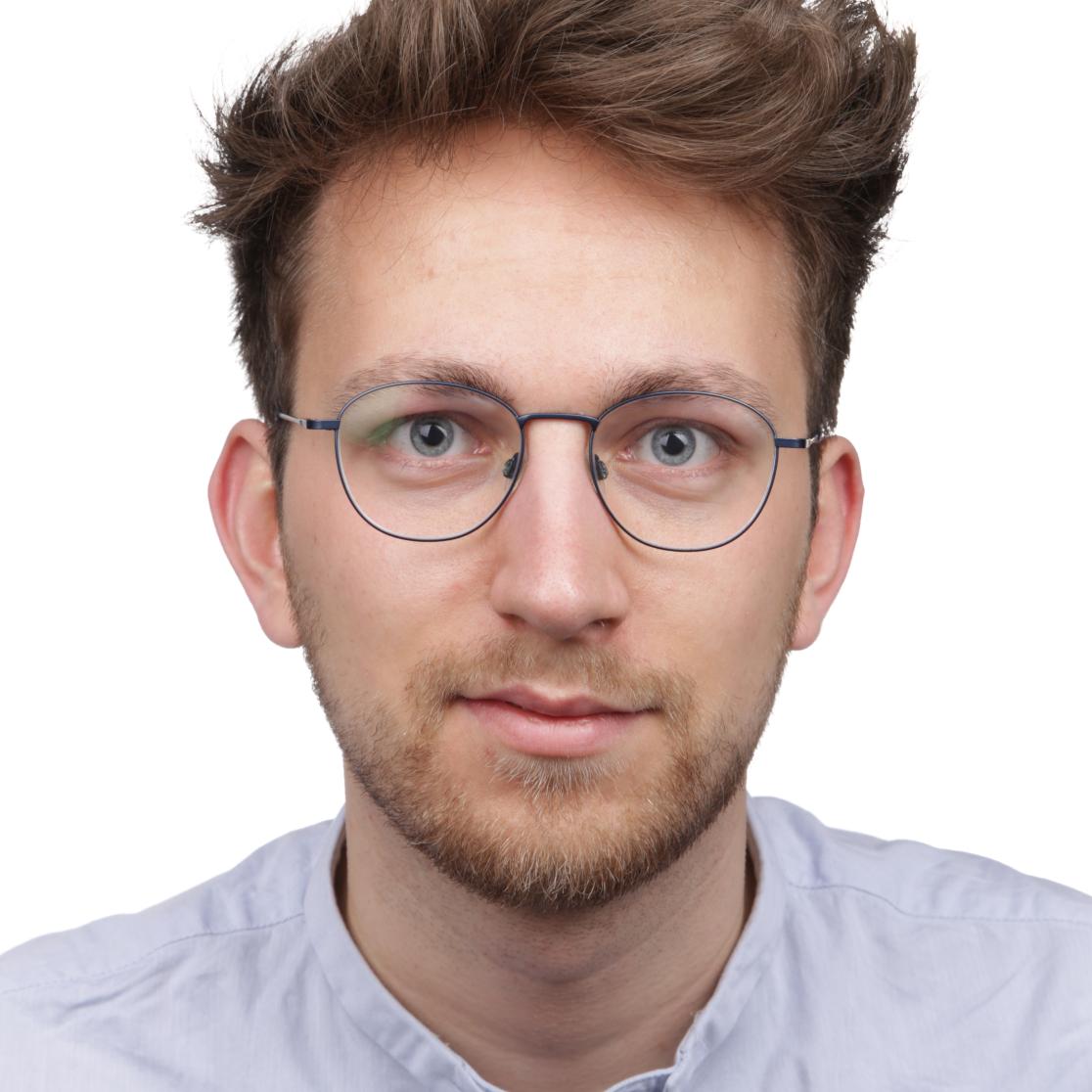Maastricht University celebrated its 46th Dies Natalis on Thursday 12 May 2022, in the Sint Jans Church in Maastricht. The programme included a special ceremony, in which the outgoing rector magnificus, Professor Rianne Letschert, transferred her position to Professor Pamela Habibović. The Wynand Wijnen Prize, the Dissertation Award and the Student Prizes were also presented.
Initially set to take place on 28 January 2022, the event was rescheduled due to COVID-related circumstances. Professor Habibović took up her new position as of 1 February.
Read more about the event
Enjoy a slideshow of pictures made during the event
Watch several videos of the 46th Dies Natalis
Meet the winners of the Student Prizes

Empowerment and leadership
This year’s theme, Empowerment and Leadership, suited our keynote speaker Nice Nailantei Leng’ete perfectly. In her speech, she talked about her human rights work and inspired us to become the ‘person we all dream to be’. “True leadership starts with the perspective of others,” she stressed. And: “Good leaders are servants.”
On this Dies Natalis, Professor Rianne Letschert officially left the office of rector. She handed over her job in January, but of course, we asked her to reflect on her term during this celebration. In her speech, she called on us to continue looking at our university critically and to solve issues together. She also articulated her ambitions for us: “A European diploma with YUFE, a lower workload and more job satisfaction, and the launch of the Einstein telescope in Limburg. I love to dream, especially when these can become a reality.”
"I love to dream, especially when these can become a reality."
Rianne Letschert | President Maastricht University
"We won’t become the oldest or the largest Dutch university, but we can become the most impactful."
Pamela Habibović, rector magnificus Maastricht University
Impressions from the 46th Dies Natalis
Click the icon above to view the entire series.
Photos: Philip Driessen.
Videos of the 46th Dies Natalis
Awards
The Wynand Wijnen Education Prize was handed to Dr. Ben Janssen and the annual Dissertation Prize was awarded to Dr. Estelle Claire Nijssen.
Student Prizes 2022
Bachelor's Student Prizes
Eighteen students completed their bachelor's degree in 2021 with a thesis that was labelled excellent by their faculty.
Master's Student Prizes
Nine students completed their master's programmes in 2021 with a thesis that was labelled excellent by their faculty.
